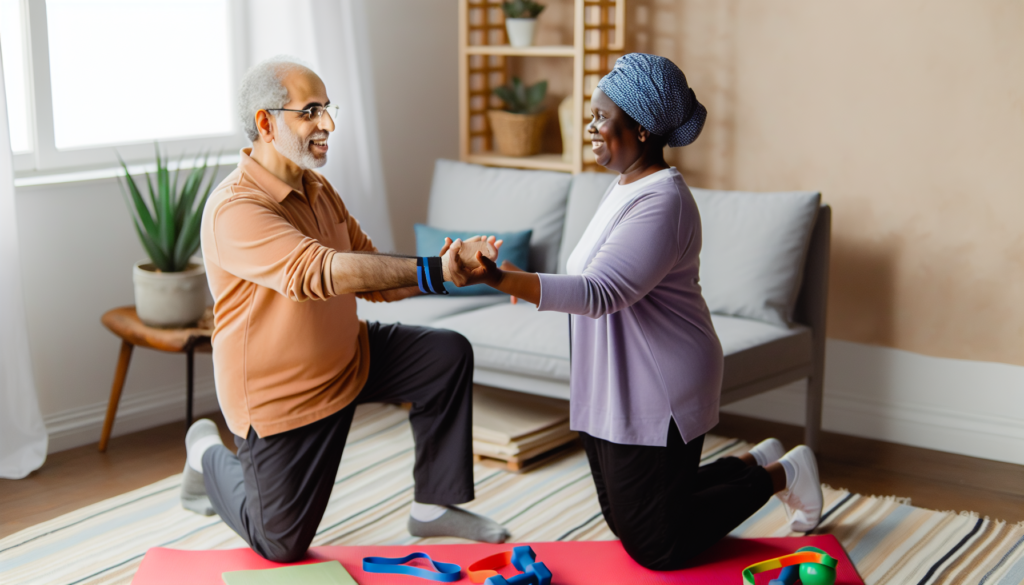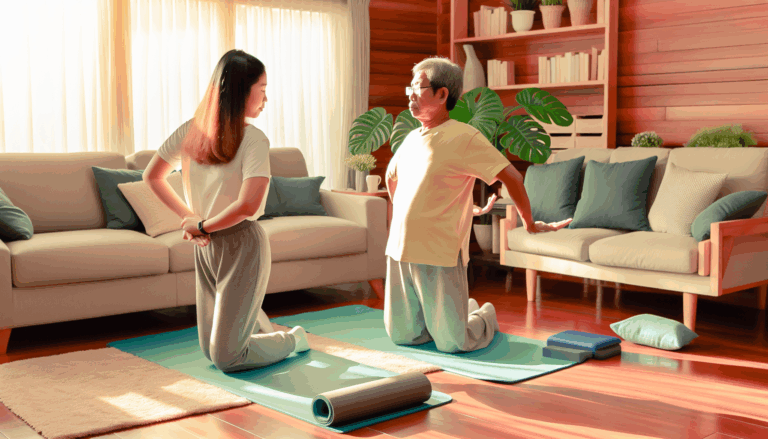The Importance of Regular Exercise in Promoting Home Healthcare
Regular exercise: it’s a habit we’re consistently encouraged to adopt for its multitude of health benefits. However, when talking about home healthcare, it often gains even more significance. Hence, our emphasis today is on the role of this descendant of the ‘healthy living’ holy trinity – along with a balanced diet and adequate sleep – in optimizing home health care experience.
Physical Activity and Its Direct Health Benefits
Firstly, let’s discuss why maintaining physical activity is crucial for everyone, especially those relying on home healthcare.
- Enhanced Strength and Endurance: Regular physical activity strengthens your muscles and boosts your endurance, making it easier for you to carry out daily tasks.
- Better Heart Health: Exercise promotes good cardiovascular health, reducing one’s susceptibility to heart ailments such as heart disease and stroke.
- Improved Mental Health: Working out stimulates the production of endorphins, known as “happy hormones,” helping to alleviate symptoms of anxiety and depression.
- Better Sleep: Regular physical activity can help to improve the quality of sleep and maintain regular sleep patterns.
- Longevity: Numerous studies have found a link between regular exercise and an increased life expectancy.
Regular Exercise in the Context of Home Health Care
Now, let’s explore why regular exercise is even more vital for individuals receiving home health care.
- A Balancing Act: Fear of falling can significantly limit the activity level of older adults receiving home health care. Regular exercise can reduce this risk by improving strength and balance.
- Preventing Muscle Atrophy: Lack of activity can lead to muscle atrophy. Exercise can help one maintain muscle mass, and improve mobility and independence.
- Management of Chronic Conditions: Regular movement helps control symptoms and delay progression of several chronic diseases like diabetes, arthritis and heart disease.
- Improved Mental State: Receiving healthcare at home can cause feelings of isolation. Exercise can contribute to more positive moods, thereby greatly helping in mental health preservation.
Making Exercise a Feasible Part of Home Health Care
It’s clear exercise offers numerous benefits for home health care recipients. However, it’s essential to create a feasible and sustainable routine.
- Start Slow: Begin with light activities like walking or chair exercises, and gradually move to more strenuous activities as strength builds up.
- Make It Fun: Opt for exercises that bring you joy, turning this ‘task’ into a pleasurable activity.
- Stay Consistent: Consistency is key. Form a daily routine and stick with it.
- Keep Safety in Mind: Always consult with a healthcare provider before starting a new exercise routine.
Remember, even small amounts of physical activity can make a vast difference. So, start where you can, and keep going to enhance your overall home healthcare experience.



